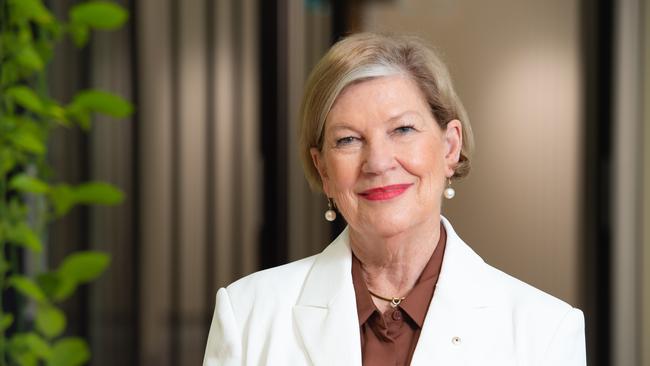‘End ban on retiree super contributions’: Super Members Council
The Super Members Council is calling for retirees to be allowed to receive contributions into decumulation accounts as it taps Ann Sherry as its new chair.

The Super Members Council of Australia is calling for an end to the ban on older Australians receiving contributions into retirement-phase super accounts, arguing it penalises those dipping back into the workforce later in life.
The industry super lobby group on Monday called for the federal government to lift the rule that forces working retirees to open a separate accumulation account to receive super contributions.
Under the current rule, these working retirees then pay two sets of account fees and are often slugged with more taxes. New research, meanwhile, has found one in four Australians continue to work into their early 70s.
“As more than 2.5 million Australians approach retirement in the next decade, the focus needs to be on making the system easier, simpler and allowing greater flexibility,” Super Members Council chief executive Misha Schubert said.
“Increasingly, many Australians want to dip back into the workforce from time to time after they start their ‘capital R’ retirement. But instead of making that process easy, currently they must open a second super fund account, with the administrative hassle of transferring money across into their main retirement account, and they pay extra fees – and perhaps more tax – than they need to.”
“The easy fix is to legislate for Australians to be able to make super contributions from part-time work and other sources straight into their retirement account. This simple red tape busting reform would make retirement easier and more flexible for tens of thousands of Australians.”
The lobby group made the call as it announced its new chair, Ann Sherry AO, who takes over from interim chair Nicola Roxon. Ms Sherry is due to take on the role on July 1, while Ms Roxon will continue on the board.
The Super Members Council was created in 2023 by combining industry bodies the Australian Institute of Superannuation Trustees and Industry Super Australia.
The group estimates about 100,000 retirees would benefit from the rule change on contributions in decumulation accounts. That number will likely grow in coming years as more Australians reach retirement age and keep the door open to working later in life.
A report published by Colonial First State in April found that fewer than one in three Australians plan to stop working completely when they hit retirement age.
The nation’s largest super fund, AustralianSuper, saw a year-on-year increase of 45 per cent in the number of members recommencing contributions aged between 65 and 69 between 2021 and 2022, according to a discussion paper lodged with Treasury on the retirement phase of super.
“For more and more people, the transition from work to retirement is no longer an ‘off and on’ transition. Retirement is now much more fluid. The superannuation system needs to be updated to reflect this,” the super fund argued.
As many as 20 per cent of AustralianSuper members who receive a pension from their super savings are still in paid work31. “Our research shows that this trend has increased with the cost of living and increases in the cash rate. There is also a clear trend of members aged 60 and over recommencing contributions to their superannuation accounts after a period of non-contribution,” the fund wrote.
Uncertainty among retirees and pre-retirees about funding their later years leads many to stay in accumulation accounts rather than transition to retirement settings, if they believe they may re-enter the workforce at some stage.
This decision to remain in accumulation phase means members are potentially missing out on higher returns provided by a tax-free retirement account, according to AustralianSuper.
Alongside the call for the government to lift the ban on contributions to retirement accounts, the Super Members Council wants a comprehensive retirement test to be developed that measures investment performance and flexibility to access fund in retirement. The lobby group again said it did not support mandating the use of annuities for members in retirement.
The appointment of Ms Sherry as Super Members Council chair, announced on Monday, comes months after Misha Schubert was named CEO of the lobby group.

Ms Sherry is a former chair and CEO of Carnival Australia and is currently chair of UNICEF Australia, Enero Group and the Port of Townsville. She is also Chancellor of Queensland University of Technology and a director of National Australia Bank, Infrastructure Victoria and the Museum of Contemporary Art Australia.
“With Misha Schubert now settled as our inaugural CEO, this will ensure a smooth transition at the governance level – and support SMC’s mission to fearlessly protect and promote the interests of millions of Australians through deliberate and thoughtful leadership in superannuation policy,” Ms Roxon said.



